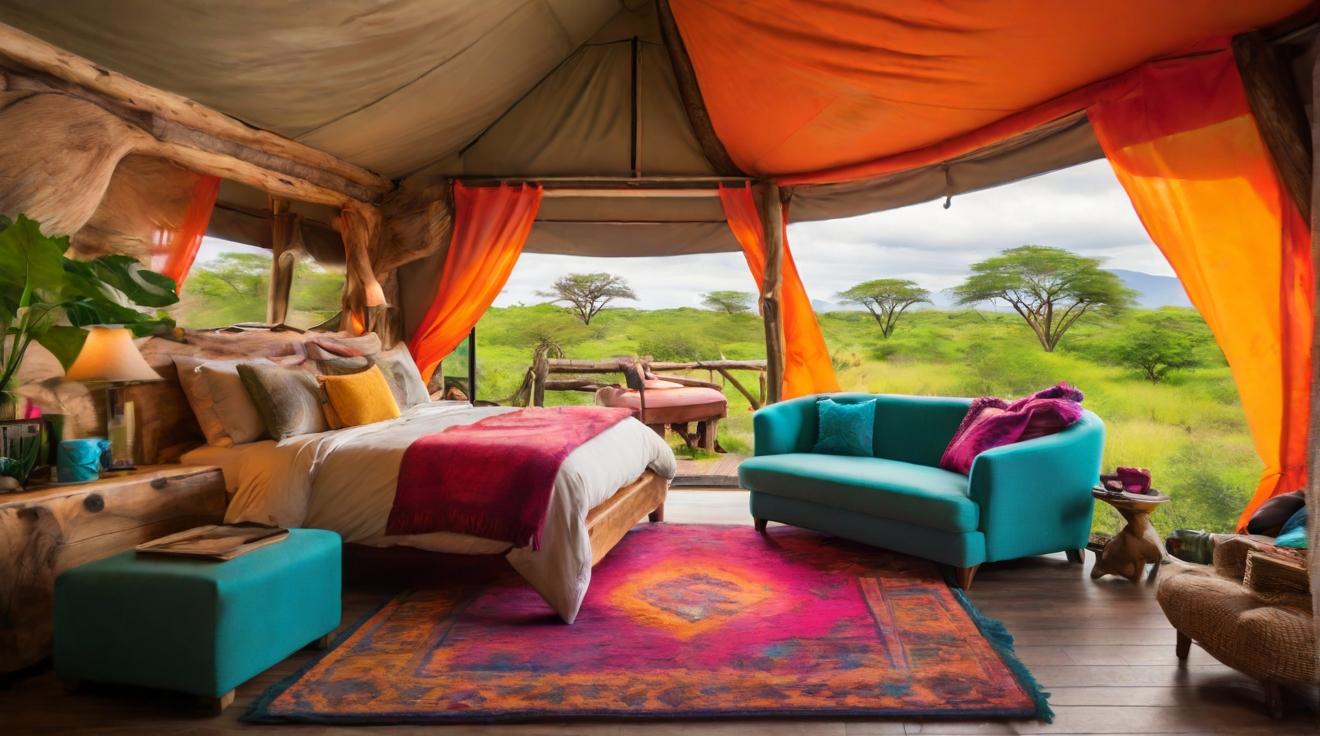Wildlife-Focused Accommodation Trends: Airbnb vs. Safari Camps SWOT Comparison
In the burgeoning world of travel, two distinct accommodation styles are emerging as front-runners for wildlife enthusiasts: Airbnb and traditional safari camps. As travelers increasingly seek immersive, nature-centric experiences, understanding the strengths, weaknesses, opportunities, and threats (SWOT) associated with these lodging options is essential. This analysis delves into the trends shaping wildlife-focused accommodations, offering insights for adventurers plotting their next escape.
Strengths
Airbnb:
Airbnb's global platform boasts a vast array of listings, including secluded retreats and eco-friendly homes that cater to wildlife lovers. The flexibility of booking, coupled with the authentic local experiences offered, makes Airbnb a compelling choice for travelers seeking personalized adventures. Additionally, Airbnb's review system ensures a level of trust and safety, reassuring guests about the quality of their stay.
Safari Camps:
Safari camps, on the other hand, offer unparalleled proximity to wildlife. Situated in the heart of natural reserves, these camps provide exclusive access to some of the world’s most extraordinary animal sightings. The expert guides available at safari camps enhance the experience, offering educational insights and increasing the likelihood of spotting elusive species. Moreover, safari camps often emphasize sustainability, appealing to eco-conscious travelers.
Weaknesses
Airbnb:
Despite its advantages, Airbnb faces criticism for its impact on local communities. In some destinations, the influx of tourists drives up rental prices, affecting local housing affordability. Additionally, not all listings are vetted for their ecological footprint, which could concern environmentally minded guests.
Safari Camps:
The cost of staying in a safari camp can be prohibitive for many travelers, limiting its accessibility. Furthermore, the location of these camps, while ideal for wildlife viewing, can often mean a trade-off in terms of convenience and connectivity, making them less appealing for those who prefer to balance nature excursions with urban exploration.
Opportunities
Airbnb:
Airbnb has the opportunity to further capitalize on the eco-tourism trend by increasing its offerings of eco-friendly and sustainable listings. By partnering with local conservation projects, Airbnb can enhance the value it provides to guests and communities alike. Additionally, expanding into more remote areas could attract travelers seeking off-the-beaten-path experiences.
Safari Camps:
For safari camps, the growing interest in responsible travel presents an opportunity to showcase their conservation efforts and sustainable practices. Investing in cutting-edge eco-friendly technologies and community engagement initiatives can bolster their appeal. Furthermore, diversifying activities beyond wildlife viewing—such as cultural tours and conservation experiences—can attract a broader audience.
Threats
Airbnb:
The regulatory landscape poses a significant threat to Airbnb, with cities around the world imposing restrictions or outright bans on short-term rentals. These regulations can limit Airbnb’s growth and affect its reputation among those concerned with sustainable travel practices.
Safari Camps:
Climate change and habitat destruction pose existential threats to wildlife, impacting the very foundation upon which safari camps operate. Additionally, political instability in certain regions can deter travelers, affecting the viability of safari camps in those areas.
Conclusion
In the competition between Airbnb and safari camps for the attention of wildlife enthusiasts, both offer distinct advantages and face unique challenges. Airbnb’s flexibility and global reach make it a popular choice, but its impact on local communities and sustainability concerns are notable drawbacks. Safari camps offer an unrivaled wildlife experience and prioritize eco-friendly practices, yet their higher cost and accessibility issues may limit their appeal. As the travel industry continues to evolve, both accommodation types have the opportunity to grow and adapt, potentially reshaping the landscape of wildlife-focused tourism.













